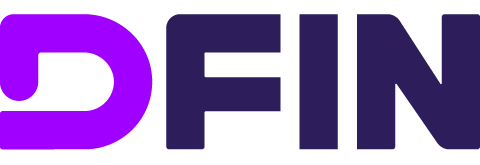An interview with Jeff Philips, Donnelly Financial Solutions
What does Donnelley Financial Solutions do and what is your role?
“I’m the Director of Marketing. Donnelley Financial Solutions is focused on financial services and my particular business unit is in the investment markets group. What we generally do in both business units, but ours in particular, is facilitate the management of content and data for the creation of financial disclosures for financial regulators for the SEC or the British regulator, which is I think the FSA. And so, we have a series of software products people use to manage that content, as well as a series of services that help them distribute that electronically or through good old fashioned print and mail.”
What different purposes does Donnelley Financial use training for?
“We use it for a lot of different things. My particular use is for sales training. We’re a business that is really in transition, as I’m sure many are, from our old, traditional print and mail world to a software-oriented business. We’re creating software to manage content and distribute it and we’re having to bring our salespeople along into a new world to understand new things. So, as we roll out new products and get into new regulatory needs, there’s a level of complexity that our salespeople need to understand and we’re trying to bring them along and make sure they know how to speak and act in those situations.”
How do you choose what training methods are used for different purposes?
“We have a lot of service training going on, which I’m not that connected with and that’s for our processings that we use to service clients as well as to bring new employees in, or to cross-train people into new roles. I think, basically, both that group and on the sales and marketing side, we’ve done a lot of what I’d call traditional training in the sense that you tell people stuff about the products either in a classroom setting or in a webinar and, you know, you use PowerPoint and you hope they get it. I think we felt that was inadequate – people were falling back into their old habits and not necessarily taking up the information, so we did start looking for ways to reinforce that and that’s how we ended up with Wranx.”
With the benefit of hindsight, what sort of things would you have looked for more in looking for an e-learning solution?
“I hate to suggest a consultant, but someone maybe to counsel us on what we were doing. I know that sounds absurd, but I think we kind of ran at it. I think our insight was accurate, in the sense that the reason we went for Wranx was because we thought people weren’t taking up the information and we needed a tool to help them pick that up and we totally bought into – and we still believe in – the underlying idea of Wranx; and they’re using Wranx on the service side now.”
What sort of impact has Wranx had?
“I think on a general, anecdotal basis – I haven’t done an analysis – I definitely think there’s more of a familiarity with terms, with language, that stuff. It works in that way – people have a sense of how to speak with different financial reporting terms, or regulatory reporting terms, that were important for us to feel like our salespeople could demonstrate some fluency with the issues that client were dealing with.”






